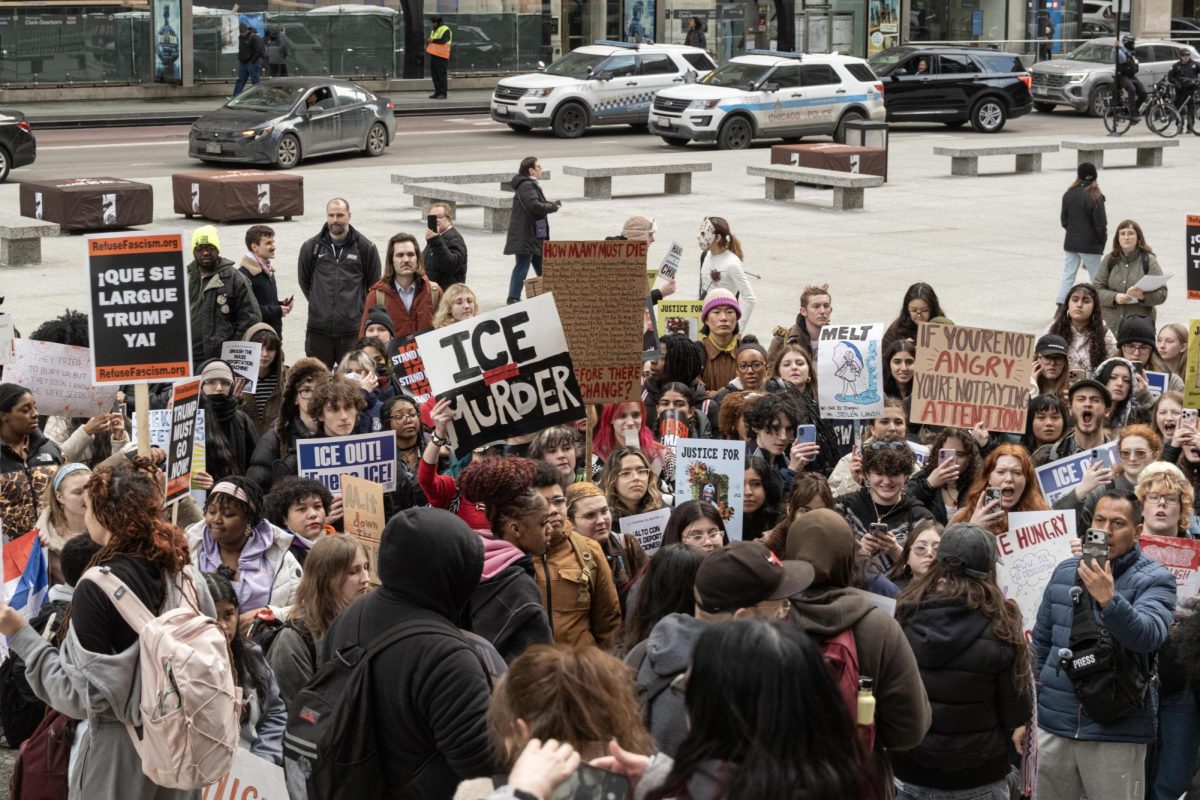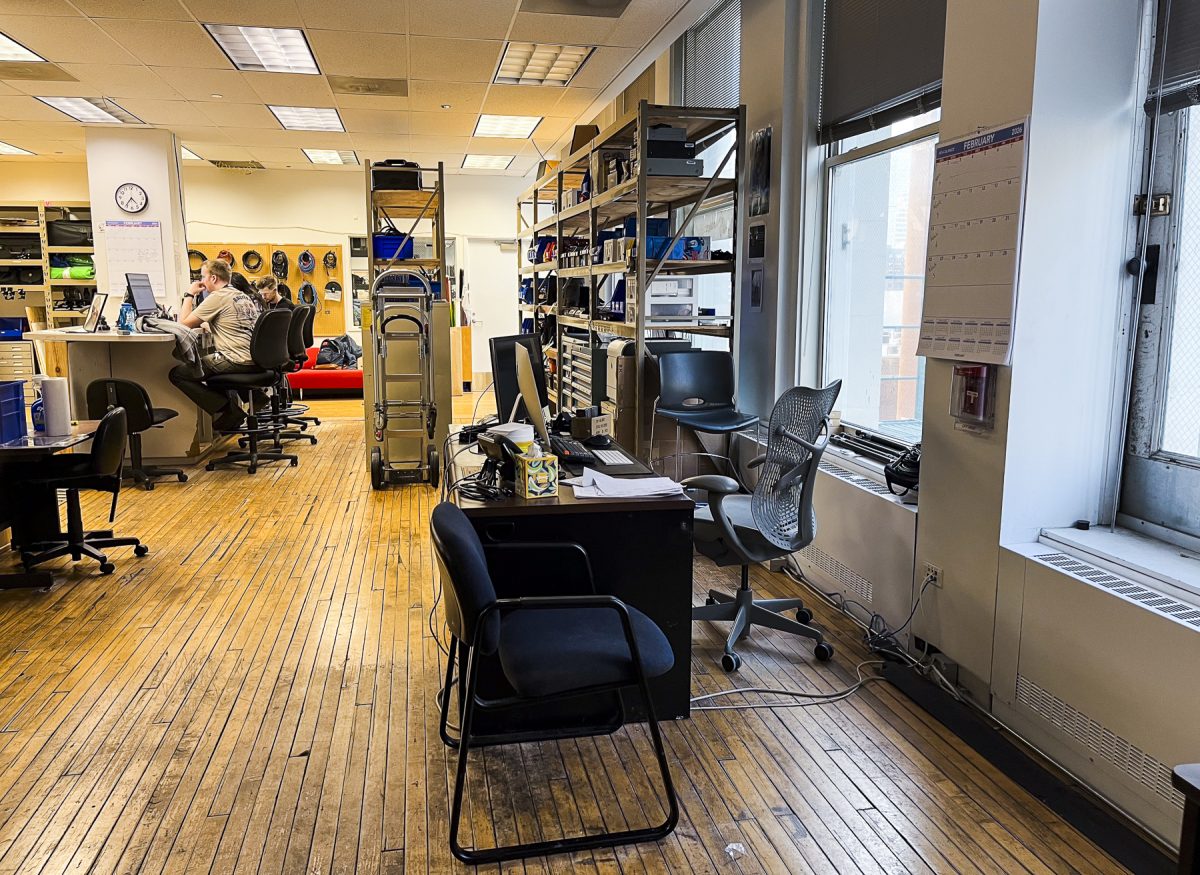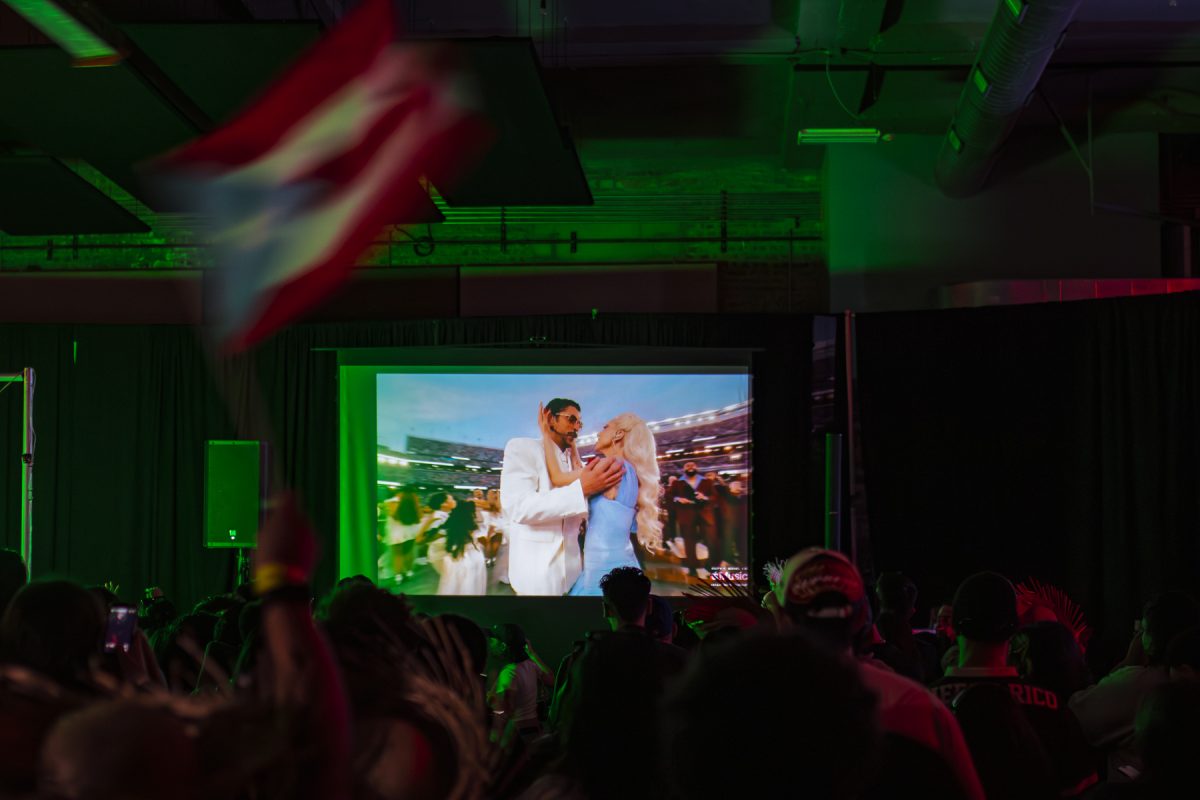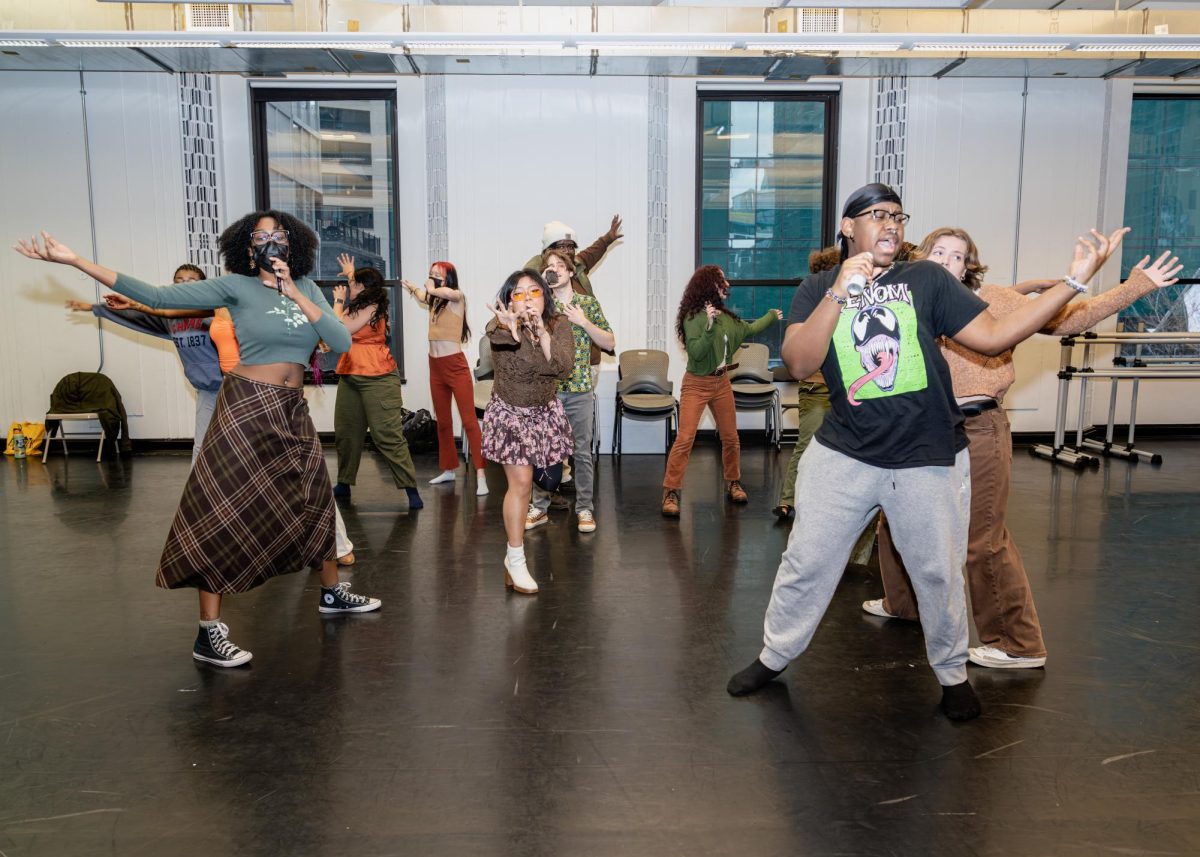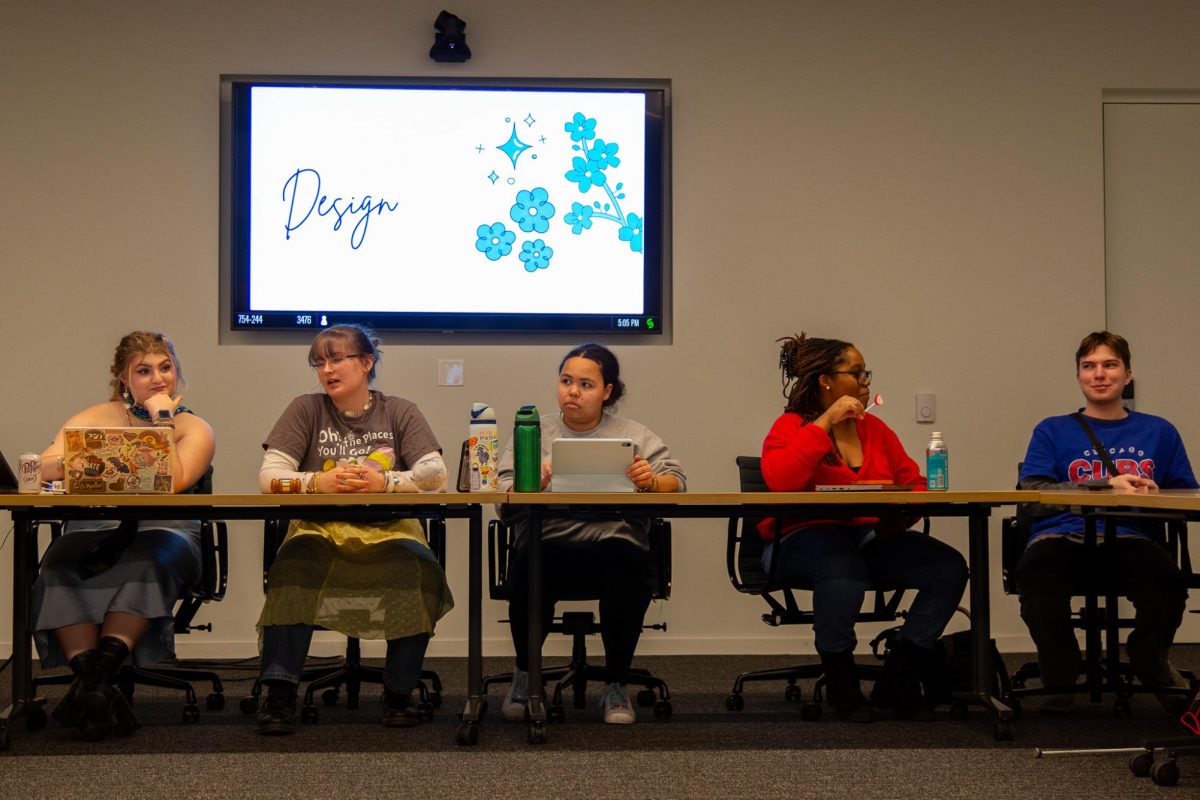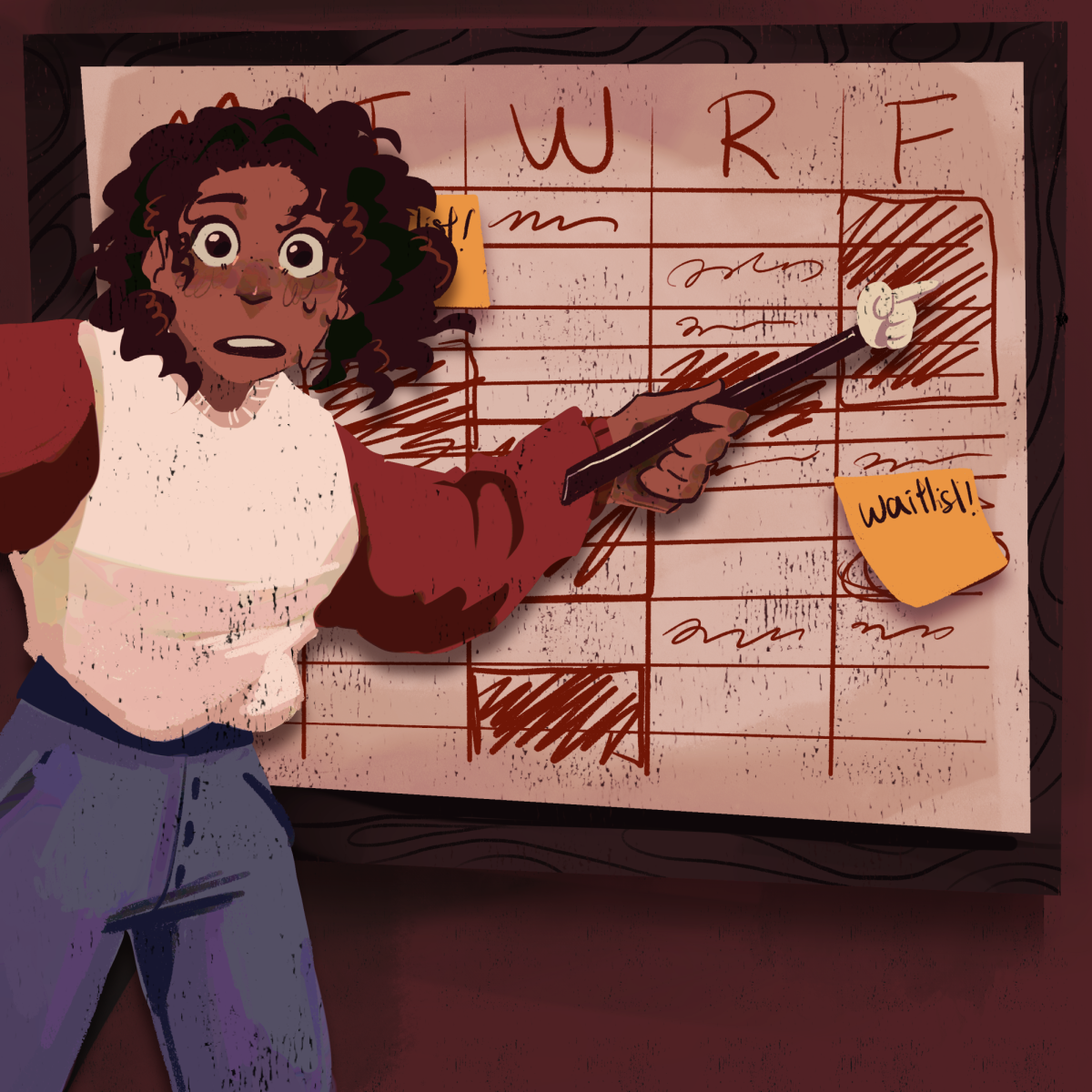A first-year music major at Columbia had already bought her airline ticket to go back home to Mexico City this summer when she read a news story that multiple international students at Minnesota State University had their visas revoked and now faced possible deportation.
After doing more research, the student decided she could not risk going home to Mexico to see her family over summer break.
“It’s just unfair; it’s scary. I feel like I am not even very sure of where I am standing,” she said.
The Chronicle has agreed to keep the student’s name private because she fears having her visa revoked for speaking out against the U.S. government.
An analysis by Inside Higher Ed found more than 1,800 students across 280 colleges and universities have seen their visa status changed by the State Department. On Friday, April 25, the Trump administration restored the previously terminated legal statuses of the impacted international students in the U.S. for the time being.
The Trump Administration has taken aggressive steps to roll back immigration protections, freezing work permit renewals, revoking visas for some protestors —including individuals with minor legal infractions — and encouraging voluntary “self-deportation” by threatening harsh legal consequences.
Every visa revocation has been accompanied by a Student Exchange and Visitor Program termination. The college currently is not aware of any Columbia student whose visa was revoked, said Director of International Student Scholar Services Clare Lake.
F-1 and J-1 visas are non-immigrant visas for studying in the U.S., with F-1 visas for full-time academic students and J-1 visas for exchange visitors in programs like study abroad or internships.
Junior arts management major Feihong Guo from Beijing, China, worries that minor violations like a traffic violation could impact his visa.
“For international students, ordinary crimes or other failures to maintain their student visa status can still result in their student status being cancelled, and students themselves deported,” said Guo, an international student ambassador at Columbia who helps students manage student visas, immunization records, insurance, tax forms, bank accounts, transportation and tourist attractions.
“These things happen all the time,” Guo said. “I might be overthinking that one small mistake can affect my immigration record/student status, and worst case scenario, deported.”
The music student said that she was last able to visit her family in Mexico over winter break. When she returned on Sunday, Jan. 26, a few days after President Trump was inaugurated, she noticed “a lot more security” and was stopped for 20 minutes for questioning in a separate room. She was eventually released and told that all of her papers were in good standing.
The Trump administration has said repeatedly that visas are a “privilege” and can be revoked at any time for a “wide variety of reasons.”
“I feel like I don’t have a voice,” the first-year music major told the Chronicle.
The student shared an email that she received from International Student Scholar Services listing the documents needed to travel internationally over the summer, as well as some guidance.
“Please be mindful of what you post online. Social media posts can affect your admissibility to the U.S.,” the email stated.
International students make up 5% of Columbia’s student body.
Sophomore arts management major Stella Huang from Henan, China, said that she decided to stay in Chicago for the summer to look for internships but that the political climate against international students contributed to the decision.
Multiple international students have said that Lake, who is also a member of the National Association of Foreign Student Advisers, has been a helpful resource for international students.
Lake said that his goal when addressing students’ concerns is to be informative, but not overreactive.
“I just try to stay abreast of what’s happening overall,” Lake said. “I assured them that you know, none of the students at Columbia at this time had been affected, and just try to give the general information, be upfront and say that I’m always watching to see what’s going on, and then I will follow up with anyone individually if I think there are concerns.”
When more than 10 international students gathered on the fourth floor of 618 S. Michigan Ave. on Thursday, April 24 for a Global Journey Panel and Discussion hosted by Guo, who also is international student senator for the Student Government Association, the Chronicle was asked not to photograph participants.
Lake said that though there isn’t much the college can do regarding the status of student visas, the best thing that Columbia as a whole can offer is transparency and support.
“We don’t have any control over what the U.S. government decides, or what custom and border patrol does. So we have no control over travel bans,” Lake said. “Just be supportive and realize that they could be a little nervous that they’re on edge. Just be a friend.”
For the first-year music major, the process to even attend college in the U.S. was “really heavy to digest.” She said that in order for these students to feel the support around campus they need “a lot of empathy.”
“Be the voice that we can’t scream. Be the voice that we can’t use right now, because our security and our current home is at risk,” the first-year music major said.
Copy edited by Patience Hurston


